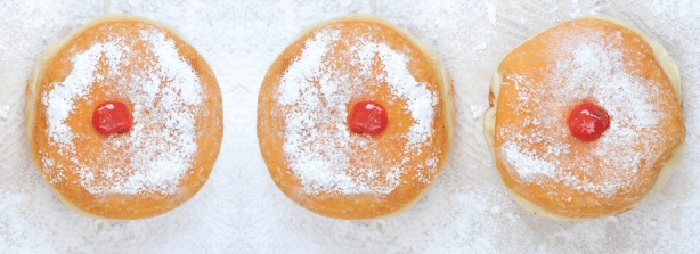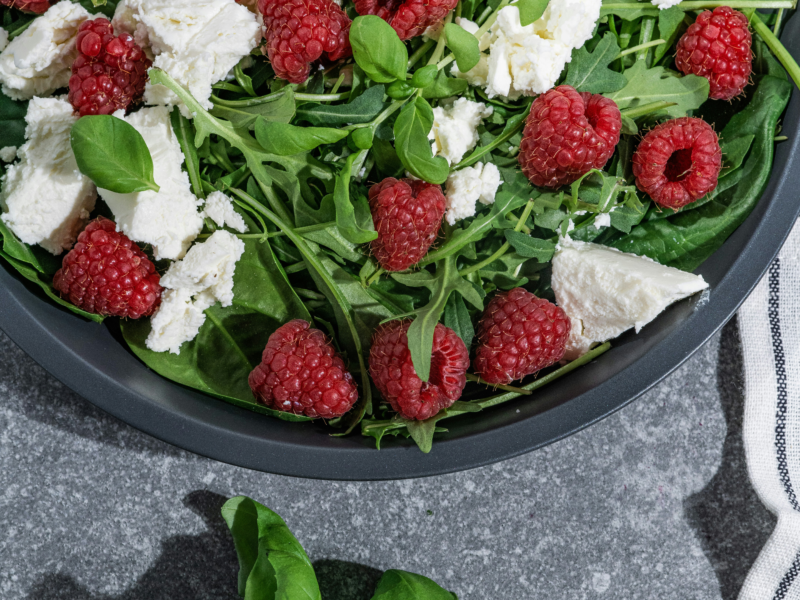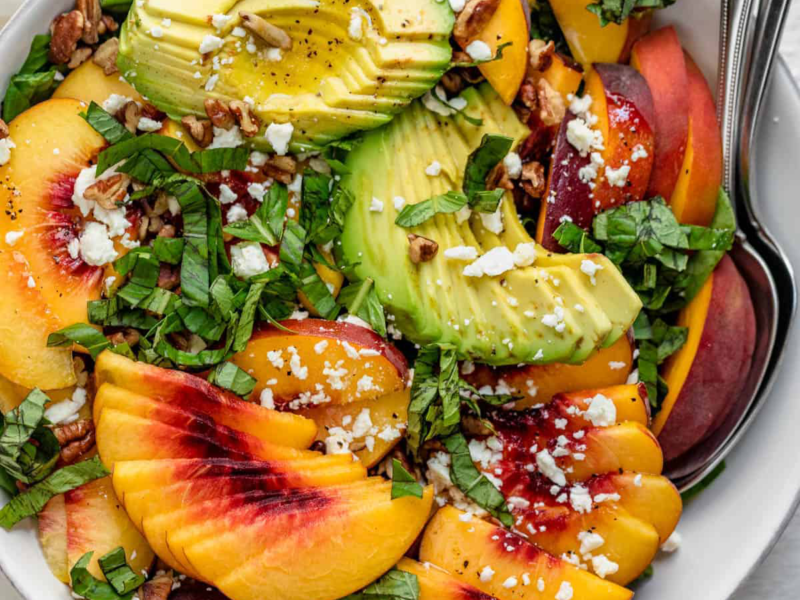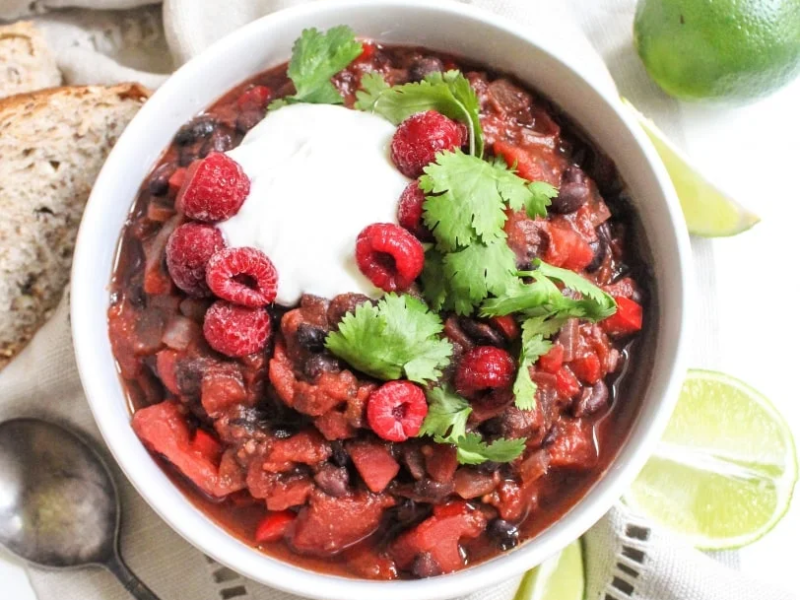
Hanukkah starts at sundown on Dec. 2, but it’s been sufganiyot season in Israel for the past several weeks. Israelis consume an estimated 24 million of these deep-fried, jelly-filled holiday treats in the weeks leading up to the Festival of Lights.
But where did this tradition of eating jelly doughnuts on Hanukkah originate?
For centuries, fried foods have been eaten to commemorate the miracle of the one-day supply of oil lasting for eight days. Original doughnuts were more of a savory snack, filled with vegetables, cheese or meat.
According to Gil Marks’ Encyclopedia of Jewish Food, the first jelly doughnut recipe was found in a German cookbook called Kuchenmeisterei (Mastery of the Kitchen) in 1485. At that time, sugar was very expensive, so it was a rare treat associated with holidays.
Then two critical events brought jelly doughnuts into the forefront. In the 1500s the price of sugar fell with the introduction of Caribbean sugar plantations and Kuchenmeistere was translated into Polish.
Wherever Polish Jews traveled throughout the 19th and 20th centuries, their tradition of eating their jelly paczkis (or ponchiks in Yiddish) during Hanukkah came too. According to Marks, “In Israel, ponchiks soon took the name sufganiyah (sufganiyot plural), from a ‘spongy dough’ mentioned in the Talmud, sofgan and sfogga.”
In the 1920s, the General Federation of Jewish Labor declared sufganiyot the official food of Hanukkah. Why did the Labor Force declare this? Because the sufganiyot provided the Jews living in pre-state Israel with jobs – baking, delivering and merchandising all those doughnuts.
Now, almost 100 years after that declaration, sufganiyot are still the most recognized treat on the streets of Israel at Hanukkah. Israel21c explored the phenomenon in a December 2017 article entitled “Tel Aviv’s Bakery serves up deep-fried donut tradition.” Rebecca Stadlen Amir wrote:
“It’s like going back to basics,” says Adi Perry, Bakery’s brand director, of their approach to sufganiyot. “When you eat something traditional, it should be about the memories. The original sufganiyah was simple.”
And that’s what Bakery plans to deliver this year – 40,000 handmade sufganiyot in classic strawberry, caramel and chocolate. (Note: Bakery’s products are not certified kosher.)
During Hanukkah, the factory on Yad Harutzim Street works 24/7 to supply each of the five Bakery branches across Tel Aviv with a constant fresh supply, including four drop-offs every day beginning at 9 am.
Each sufganiyah weighs 60 grams, yet no two are the same. “Our team makes each one by hand,” says Adi. “Nothing is perfect; some are rounder than others, and that’s the beauty.”
If you don’t spend Hanukkah in Israel, you can enjoy sufganiyot here in Portland, which is reknowned for its doughnut shops.





